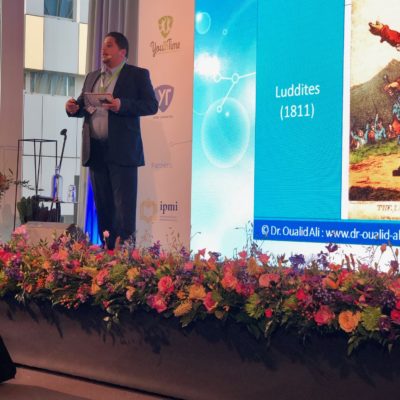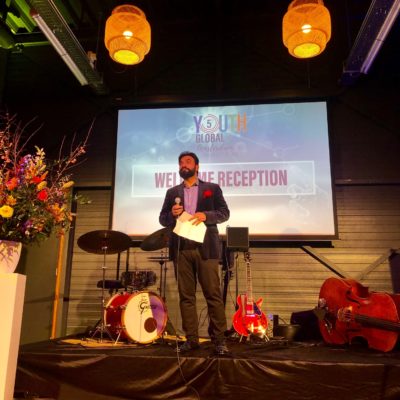Day two of the Youth Global Forum was all about inclusive development. This concept refers to a people-centred economic model that provides every member of society with the same opportunities, an economic model where everyone profits from economic growth and no one is left behind. In order to learn more about inclusive development, Orange Magazine sat down with Atif Shafique, associate director at the Royal Society of Arts. Coming from an International Relations background, the London-based think tanker has conducted research on inclusive economic growth over the past 8 years, making him one of the leading experts on the topic.
Orange Magazine: Inclusive Development sounds like a great concept but its implementation seems to rely on political will. What can youth do to foster inclusive development?
Atif Sadique: I think the point about political will is important. Actually, we have access to so much data that is showing us the level of inequality in society, showing as that we are facing a climate catastrophe. It’s not a lack of data or information. The role of young people is to create bottom-up institutions, to create the conditions for political will to change. We are seeing it across the world, we are seeing the rise of social movements of actors and individuals that are recognising that the way that older generations created policies and made decisions is not right. Young people are good at problem solving, they are good at identifying what the issues are and trying to use their creativity and entrepreneurship to find solutions. I think that’s the way policy making really needs to happen.
OM: Discussions on economic topics are rarely inclusive. Ordinary people are often denied participation in discussions. How can we make the discussion on inclusive development more inclusive?
AS: Experts are not always right. That is because they have not been relying on the insights, experiences and expertise from ordinary people that are facing these issues day in day out. It is those experiences, those insights that policy makers have to tap into far more than they do now. That means changing the governance of political systems, changing the governance of economic decision making and involving different groups in actually making those decisions. There is a number of ways we can potentially do that, such as the deliberative democracy method that brings citizens and experts together. There are initiatives like participatory budgeting which give citizens a direct stake, direct influence, direct power over making decisions about public expending. What we have seen there is that those citizen experts have made better decisions than the traditional experts. We should tap into that far more.
OM: Following the logic of inclusive development, investing in people will create a healthier, happier, and more productive workforce. Is inclusive development ultimately all about growth?
AS: Just abandon growth altogether could be problematic. Some argue that we actually do need some level of growth, particularly in productivity, because there is a link between productivity growth and wage growth and therefore growth of people’s living standards. What is clear is that we need a completely different type of growth. We need an economic growth model that prioritises quality of life, that does not increase environmental and social degradation, that provides opportunities to all the people and that is distributional.
OM: What can we learn from countries that have inclusive development policies in place, such as Iceland, New Zealand and Scotland?
AS: Those countries provide us with a set of design principles, things to consider when we create a policy in our own countries. Those countries show that there are possibilities to look beyond GDP when thinking about economic progress, when setting policy. Those countries are clear examples of how you might do that, what types of resources are needed for that, what kind of policy instruments you can use and what types of arguments you need to make to built the case.
OM: The 5th Youth Global Forum revolved around the question “Industry 5.0 vs. Inclusive Development — Where is the Future?” Is it either or, or do you see a middle route?
AS: It is definitely not one or the other. Technology has a huge impact on work and the structure of our economy. We need to find ways to ensure that the benefits of technology are shared equally and actively. What we should not do is say that technology is the enemy but rather understand it as an opportunity. If you ask me, inclusive development and industry 5.0 are two sides of the same coin. We are not going to reverse technological progress. What we have to do is ensure that it does not act against certain segments of society. We have to ensure that technological development happens in a way that provides benefits across society. That is the challenge.
by Anna Rickert
Want to learn more about inclusive development? Check out Atif’s latest publications here: https://www.thersa.org/about-us/staff/profiles/atif-shafique





